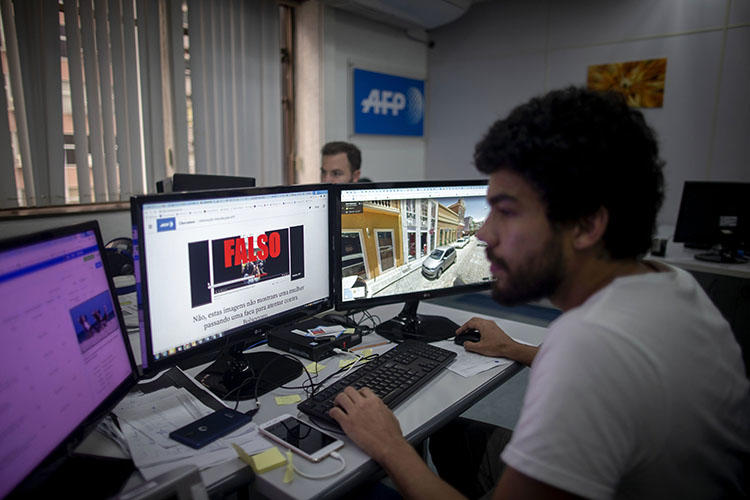Rio de Janeiro, February 12, 2020 — The Committee to Protect Journalists today condemned the online harassment campaign against Brazilian journalist Patrícia Campos Mello.
Yesterday, during a congressional hearing on fake news in Brasilia, the capital, Hans River Rio do Nascimento, a former employee of a digital marketing company, gave a statement attacking Campos Mello, suggesting she lied in her reporting and accusing her of being willing to trade sex for information, according to a video of his testimony.
Campos Mello is a reporter at Folha de S.Paulo, Brazil’s largest daily newspaper, and was a recipient of CPJ’s 2019 International Press Freedom Award.
Following Nascimento’s testimony, Campos Mello received hundreds of harassing messages on social media, and several politicians, including Eduardo Bolsonaro–a congressman and son of President Jair Bolsonaro–shared and repeated Nascimento’s allegations on Twitter, she told CPJ via phone.
The Parliamentarian Commission of Inquiry on Fake News was established in September 2019 with the goal of investigating online harassment and false news on social media, according to its official website.
“It is deeply ironic that a congressional hearing to investigate so-called fake news in Brazil has been used to ignite an online campaign spreading false accusations and smears against a journalist,” said CPJ Central and South America Program Coordinator Natalie Southwick in New York. “This targeted harassment shows just how far some in Brazil are willing to go to discredit investigative reporters like Patrícia Campos Mello, and how female reporters face additional barriers and threats to their work.”
After Nascimento’s statement went public, hundreds of users on Facebook and Twitter posted memes featuring her photo and messages that undermined her integrity and her work as a journalist, many with sexual language, Campos Mello said.
She told CPJ she had not received any direct threats, but said it was “absurd” that she had to “defend myself against such lies.”
Nascimento’s statement referenced an article by Campos Mello and Artur Rodrigues published by Folha de S.Paulo on December 2, 2018, which alleged that a group of digital marketing companies, including one where Nascimento worked, had stolen the identities of elderly Brazilians to spread political propaganda against the Labor Party through WhatsApp messages during the 2018 presidential election in Brazil.
Congressman Bolsonaro, along with two other congressmen, Carlos Jordy and Filipe Barros, repeated the accusations against Campos Mello on Twitter and supported Nascimento’s characterization of her journalism.
In response to the testimony and harassment, Folha de S.Paulo published an article denying each of Nascimento’s allegations.
Campos Mello has consistently received threats since her reporting on the WhatsApp messaging campaigns in 2018, which CPJ and other organizations publicly condemned at the time.
CPJ could not locate Nascimento. CPJ called the company where Nascimento worked. The employee who answered the phone said there was no one available to comment today and asked CPJ to reach out tomorrow.
CPJ Emergencies has published a Safety Note on psychological safety and online harassment.
